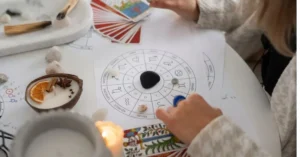Spelling bees have captivated audiences for generations, turning ordinary words into extraordinary challenges. Each year, contestants step onto the stage with a blend of nervousness and determination as they tackle an array of spelling bee words that can mystify even seasoned linguists. But what lies behind these classic terms? Where do they originate from?
In this blog post, we’ll delve into the fascinating roots of some beloved spelling bee words and explore their journeys through time and language. From quirky etymologies to surprising meanings, you might discover more than just how to spell them; you’ll uncover stories that make these words truly unforgettable.
Whether you’re gearing up for your own spelling competition or simply curious about the linguistic world, join us as we unravel the origins of classic spelling bee words! Excitement awaits around each turn—let’s get started!
Origins of Classic Spelling Bee Words
Many classic spelling bee words have rich histories that connect them to ancient languages and cultures. For instance, the word “schadenfreude” hails from German, meaning pleasure derived from someone else’s misfortune. Its unique sound and complex meaning make it a favorite among competitors.
Similarly, “quixotic,” inspired by Miguel de Cervantes’ character Don Quixote, stems from Spanish literature. It perfectly encapsulates the idea of unrealistic idealism—what a mouthful! Contestants often find themselves wrestling not just with letters but also with cultural references tied to these words.
Some terms even trace their roots back to Greek or Latin origins. Take “cacophony,” for example; derived from the Greek “kakos” (bad) and “phone” (voice), this word captures chaos in sound—a fitting description for some matches!
Words like “pneumonoultramicroscopicsilicovolcanoconiosis” can feel daunting too. This lengthy term is actually constructed as a medical term for lung disease caused by inhaling fine silicate or quartz dust. It’s an interesting fusion of various linguistic elements designed to convey specific meanings.
As we explore these origins further, you’ll find unexpected connections between language and history that bring depth to each spelling bee words challenge faced by contestants today.
Some of the words from this year’s bee
This year’s spelling bee words showcased an impressive array of challenging words. Participants faced terms that tested not only their spelling skills but also their knowledge of language origins. From obscure roots to contemporary vocabulary, the diversity was remarkable.
One standout word was “tsunami.” This Japanese term has made its way into English and represents a natural disaster with significant impact. Contestants had to remember the correct order of vowels and consonants under pressure.
Another fascinating entry was “sphinx.” With its ancient Greek roots, this word evokes images of riddles and mythology. The contestants showed great poise while dissecting each letter in front of an eager audience.
“Quixotic” also made waves during the competition. Derived from literature, it captures a sense of idealism that can be both inspiring and impractical. Spellers needed to grasp its unique combination of letters for success.
Lastly, “déjà vu” highlighted how borrowed phrases enrich our language. This French expression is instantly recognizable yet requires careful attention to accents when spelled out loud in competition settings. Each word brought something special to the stage this year.
Word List Resources
When preparing for a spelling bee words, having access to the right word list resources is crucial. These lists not only help competitors practice but also introduce them to words they may have never encountered before. The journey of mastering spelling bee words begins here.
One invaluable resource is the official word list available on spellingbee.com. This comprehensive guide offers a plethora of carefully selected words that challenge even seasoned spellers. Each entry includes definitions and contextual examples, providing clarity and depth beyond mere memorization.
Additionally, many schools provide their own customized PDFs filled with competitive vocabulary tailored for local bees. These documents can be goldmines for students looking to excel in their specific environment while gaining confidence in their skills.
Online platforms also play an essential role in accessing diverse collections of spelling bee words. Websites dedicated to educational resources often feature curated lists categorized by difficulty levels or themes, making it easier for participants to focus on areas where they need improvement.
Educators and parents should encourage kids to explore these different resources together. By doing so, learners can develop a well-rounded understanding of language while sharpening their competitive edge leading up to the big event.
PDF from competitor school
Many schools engage in friendly competition when it comes to spelling bee words. One effective way they prepare their participants is by sharing resources, including customized word lists. A PDF from a competitor school can be an invaluable tool for students looking to improve their skills.
This document often contains words that challenge even the most seasoned spellers. It may include frequently used terms from past competitions or unique vocabulary tailored to specific themes. The variety ensures that competitors are well-rounded and prepared for any surprise words on the big day.
Furthermore, analyzing a rival’s list can provide insight into trends and patterns in word selection. Schools may draw inspiration from one another’s lists to strengthen their own training materials. This exchange of information promotes camaraderie among institutions while sharpening each participant’s abilities.
Students who utilize these PDFs gain exposure to more complex terminology and less common spellings, enhancing their confidence during the competition. These documents serve as excellent supplementary study aids alongside official resources provided by organizations like Scripps National Spelling Bee.
Engaging with diverse educational materials helps foster a culture of learning that benefits all aspiring champions in the world of spelling bee words.
Official word list from spellingbee.com
The official word list from spellingbee.com is an essential resource for anyone interested in the world of spelling bees. It serves as a comprehensive guide to the words that competitors may encounter during competitions. This list not only helps participants prepare but also sparks curiosity among language enthusiasts.
Each year, thousands of students dive into this treasure trove of vocabulary. The list includes words ranging from common to obscure, challenging even the most seasoned spellers. Many participants spend hours studying and memorizing these terms, hoping to impress judges and audiences alike.
This resource is meticulously curated by experts who understand the nuances of language and linguistics. They ensure that each word meets specific criteria for difficulty and relevance, making it both educational and engaging for spellers at all levels.
Accessing this official word list can be a game-changer for aspiring champions. It equips them with knowledge they need to excel beyond their local competitions. Additionally, parents and educators can use it as a tool to foster learning in a fun way.
Whether used for practice or inspiration, the official spelling bee word list remains a cornerstone in preparing future generations of spellers. Each term offers insight into our rich linguistic heritage while paving the way towards victory on stage.
Insights from Champions
Champions of spelling bee words often have fascinating insights into the world of competition. They emphasize the importance of dedication and practice. Many start preparing years in advance, mastering not just words but also their origins, meanings, and even languages.
Some champions share that reading plays a crucial role in their success. The more they read, the wider their vocabulary becomes. They recommend incorporating diverse literature—from classic novels to scientific journals—into daily routines. This broad exposure helps them tackle unexpected words during competitions.
Another common thread among winners is mindfulness and stress management. Spelling bee words can be intense environments, so many champions adopt techniques like deep breathing or visualization before stepping onto the stage. These practices help them remain calm under pressure.
Networking with fellow competitors is also beneficial for many participants. Sharing tips and challenges creates a supportive community where everyone can grow together as spellers.
Several champions highlight resilience as key to overcoming setbacks. Losing once does not deter them from returning stronger each year; it fuels their passion for improvement and mastery over complex spelling bee words.
YouTube video showcasing winning words
YouTube has become a treasure trove for spelling enthusiasts. It not only showcases past competitions but also highlights the incredible words that have stumped and thrilled contestants. Many channels feature videos dedicated to classic spelling bee words, providing viewers with insights into pronunciation, etymology, and usage.
One popular video series dives deep into iconic winning words from various years—words like “appoggiatura” or “scherzando.” These clips often analyze how champions prepared for their moment in the spotlight. Viewers can learn strategies used by top spellers while gaining a deeper appreciation for the intricacies of language.
Moreover, these videos offer engaging commentary from experts who explain why certain words made it to the finals. It’s fascinating to hear about the linguistic roots behind each word—a blend of Greek influences or Latin origins often surfaces in discussions.
If you’re eager to elevate your own spelling skills or simply enjoy watching others spell their way through challenges, checking out these YouTube resources is a must. The passion displayed by competitors combined with insightful analysis makes this content both entertaining and educational.
So grab your notebook and start exploring! Whether you’re preparing for an upcoming bee or just love learning new vocabulary, there’s something valuable waiting on those screens.









